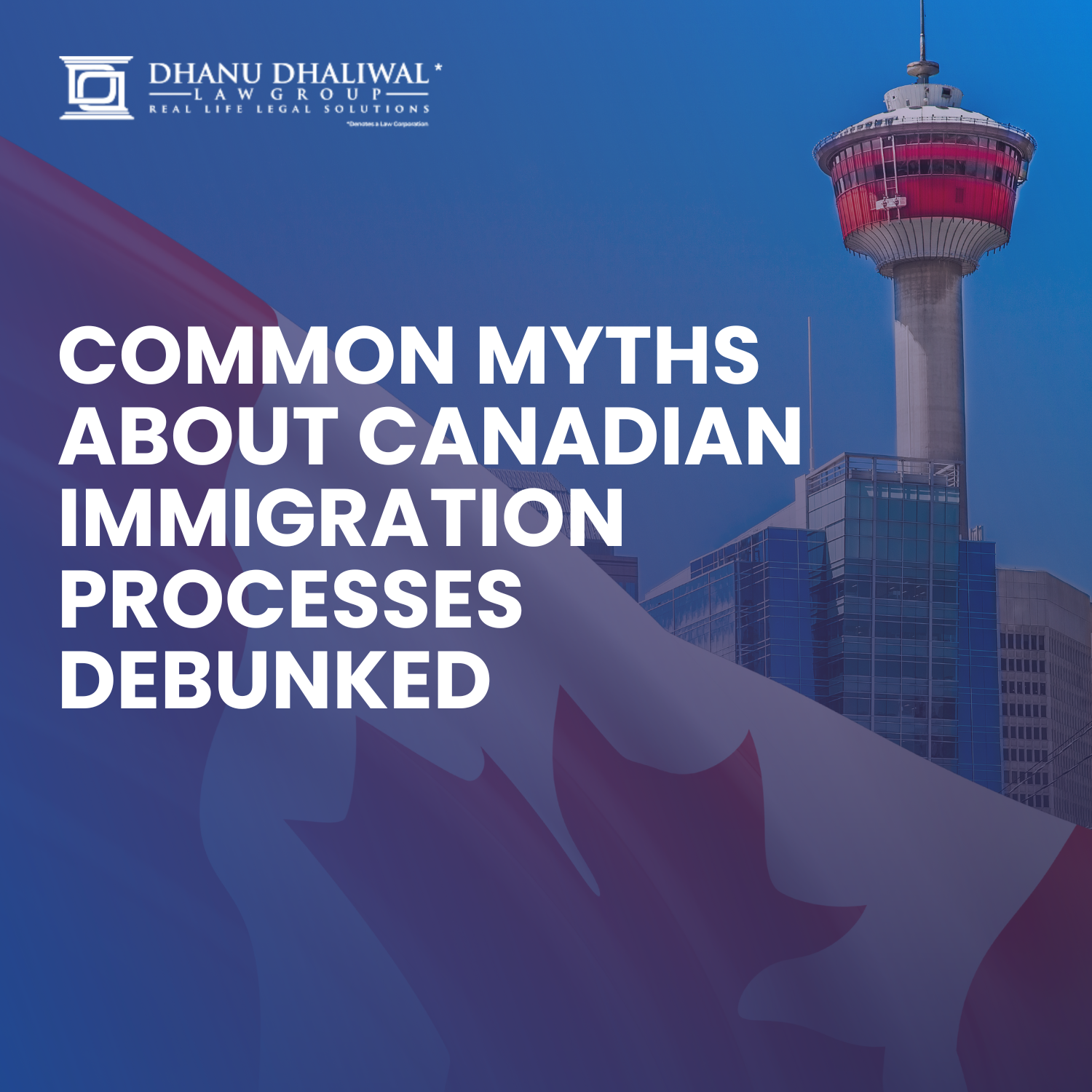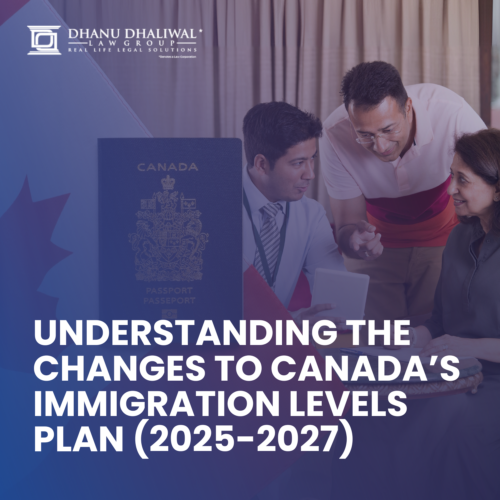Canada is one of the most welcoming countries for immigrants, boasting a rich cultural mosaic and a strong commitment to diversity. However, the process of immigrating to Canada often comes with its fair share of myths and misconceptions. These misunderstandings can mislead potential immigrants, making the journey more stressful than it needs to be. At Dhanu Dhaliwal Law Group, we aim to clear the air by debunking some of the most common myths about Canadian immigration.
Myth 1: Marrying a Canadian Citizen Automatically Grants Citizenship
Many believe that marrying a Canadian citizen immediately leads to citizenship. This is far from the truth. While marriage allows a Canadian citizen to sponsor their spouse for permanent residency, the process is rigorous. Applicants must prove the authenticity of their relationship and meet specific residency requirements. Citizenship, if pursued, comes later and involves meeting criteria like physical presence in Canada for at least three years.
Myth 2: Graduating in Canada Guarantees Permanent Residency
Canada is a popular destination for international students, but completing a program of study does not automatically lead to permanent residency (PR). Graduates need to apply for programs like the Post-Graduation Work Permit (PGWP) to gain Canadian work experience, which is often a requirement for PR pathways like the Canadian Experience Class. Success depends on fulfilling all eligibility requirements, not just holding a degree from a Canadian institution.
Myth 3: You’ll Find a Job Immediately Upon Arrival
Canada’s growing economy and aging workforce create significant demand for skilled workers. However, this doesn’t guarantee immediate employment for newcomers. Many face hurdles such as unrecognized credentials, language barriers, and a lack of Canadian work experience. Success in the job market often requires time, persistence, and sometimes additional training or certification.
Myth 4: Language Proficiency Isn’t Necessary
Proficiency in English or French is a critical requirement for most Canadian immigration programs. Applicants are usually required to pass standardized tests like IELTS, CELPIP, or TEF to demonstrate their language skills. Strong language abilities not only enhance your application but are also vital for integration into Canadian society and the workforce.
Myth 5: A Job Offer Guarantees PR
A job offer can enhance an immigration application under certain programs, such as Express Entry or Provincial Nominee Programs (PNPs). However, it’s not an automatic ticket to PR. Applicants must meet other eligibility criteria, including education, work experience, and language proficiency, to qualify for these programs.
Myth 6: Immigration Decisions Are Always Final
Denied applications or rejected refugee claims can feel like the end of the road, but they don’t have to be. Many immigration decisions can be appealed or judicially reviewed. If you face a denial, seek legal advice immediately to explore your options.
Why Choose Dhanu Dhaliwal Law Group?
Navigating the complexities of Canadian immigration requires accurate information and expert guidance. With offices in Abbotsford, Surrey, and Vancouver, Dhanu Dhaliwal Law Group has helped countless clients successfully achieve their immigration goals.
Whether you’re pursuing permanent residency, family sponsorship, or studying in Canada, we are here to guide you through the process and ensure your application is handled with care and precision.






